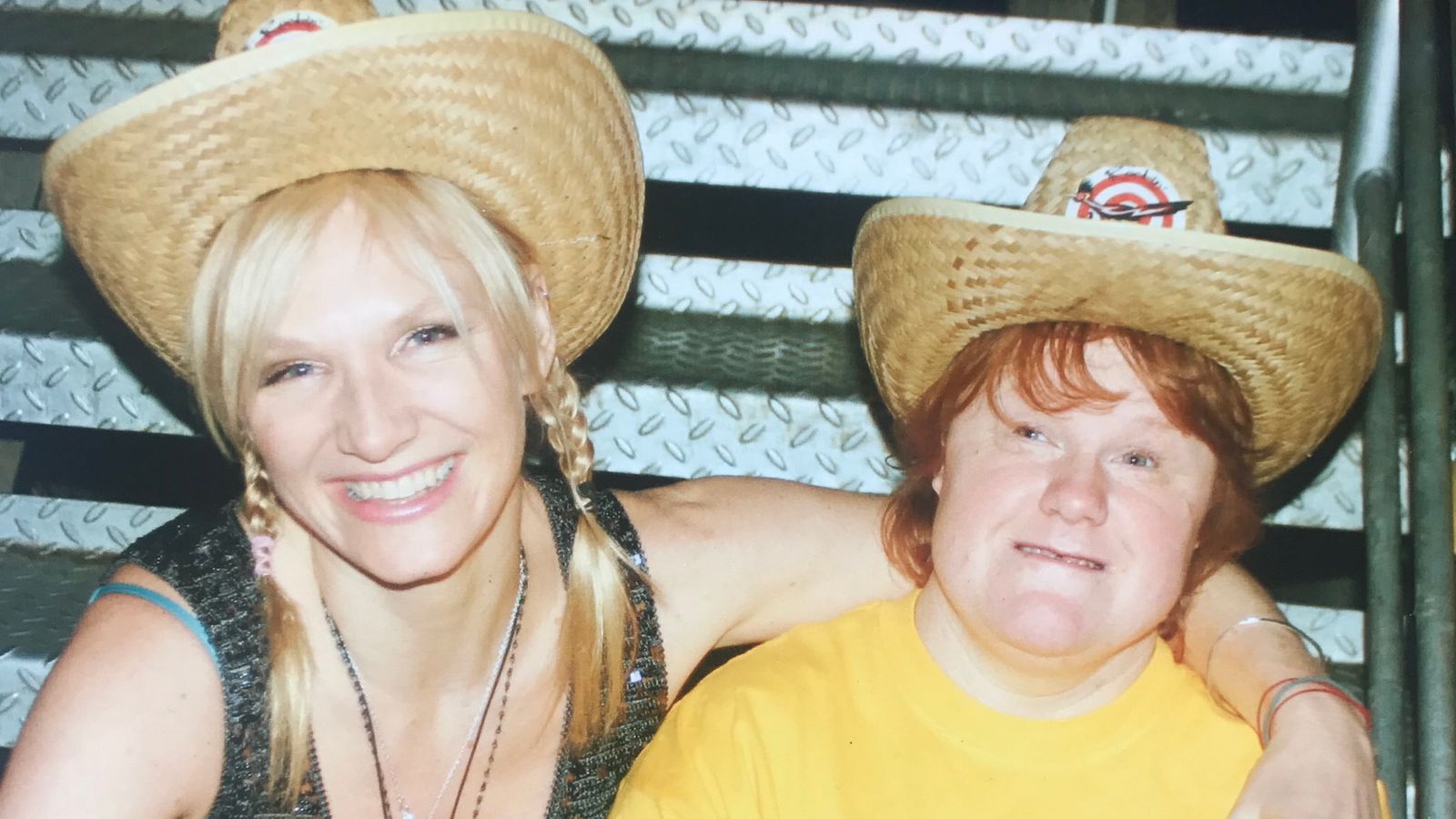All adults on the learning disability register will be prioritised to get a coronavirus vaccine, the government has said, following calls from broadcaster Jo Whiley.
People with severe and profound learning disabilities were already part of group six – adults aged 16-64 with underlying health conditions.
But care minister Helen Whately has confirmed all people in England on the GP learning disability register will now be invited for a vaccine.
The change comes after a recommendation from the Joint Committee on Vaccination and Immunisation (JCVI), the panel that advises the government on vaccine priority.
Follow live COVID-19 updates from the UK and around the world
It means at least 150,000 more people with learning disabilities will now be offered the vaccine more quickly.
Professor Anthony Harnden, deputy chair of the JCVI, told the Commons’ science and technology committee: “I would like to implore any GPs immunising in group six now reach out to people with learning disabilities and prioritise them with group six.”
The JCVI is calling for the NHS to work with local authorities to identify adults in residential and nursing care, and those who require support in the community, who may not be registered.
Health Secretary Matt Hancock tweeted: “I know how worried many with learning disabilities, & their loved ones, have been. So I warmly welcome this JCVI advice that everyone on the GP Learning Disability Register should now be jabbed in cohort 6.
“I’ve asked the NHS to implement immediately.”
The NHS is currently immunising people in group five – anybody aged 65 and over – and some areas have moved on to group six – people aged 16 to 65 in an at-risk group.
The JCVI has decided on the priority of the next phase of the vaccine rollout after group nine (all those aged 50 and above) and ministers are currently looking at it, Prof Harnden said.
There was concern people with learning disabilities were not included, with DJ Jo Whiley, 55, saying she had been offered the vaccine ahead of her sister who has learning disabilities and diabetes and was admitted to hospital with COVID-19 last week.
Her sister, Frances, 53, who has the rare Cri du Chat genetic syndrome, has now received the coronavirus vaccine and is isolating with her parents at home.
Responding to the government’s announcement, Whiley told the BBC: “This is a great day – I am so relieved, I’m so happy for all those people who’ve been living in fear.
“I’m very grateful to the government for listening, because it’s a very complicated situation and it’s very difficult to categorise people according to their disability, it’s very, very tricky and that’s become apparent I think over the past few months.
“And so this is clear, this encompasses everybody, and all those people who have been feeling very neglected, feeling like they don’t matter, that we don’t care, now know that we will be protecting them.
“This is absolutely crucial and I could not be more delighted. This is a massive step forward.”
Prof Harnden admitted that leaving it to local health authorities to determine which people had more severe learning disabilities in their areas had led to some inequalities in the rollout.
He said letting local leaders decide was “the most straightforward way” but added: “I do accept that has led to some inequalities throughout the country.”
Ms Whately said: “I have heard first-hand how tough this pandemic has been for people with learning disabilities and their families. We are determined those more at risk from COVID-19 should be vaccinated as soon as possible.
“Following the JCVI’s updated advice and to make this process simpler and faster, we will be inviting everyone for vaccination who is on their GP’s learning disability register. This will mean those who are at a higher risk from the virus can get the protection they need.”






















